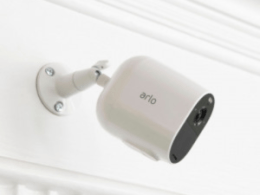Home Automation The Smart Products Taking Over in 2024
Home automation has rapidly evolved from a niche technology to a mainstream feature of modern living. As technology advances, the integration of smart products into our daily lives continues to transform how we interact with our homes. This article explores the future of home automation, highlighting key smart products to watch, and providing analysis and comparisons to help you stay ahead of the curve in a rapidly changing landscape.

Understanding Home Automation
Home automation refers to the use of technology to control various aspects of a home, such as lighting, heating, security, and entertainment systems, through automated systems or remote control. The core idea is to enhance convenience, efficiency, and security while providing a more seamless and integrated living experience.
Key Trends Shaping the Future of Home Automation
- Artificial Intelligence and Machine Learning
The integration of artificial intelligence (AI) and machine learning is revolutionizing home automation. AI enables smart products to learn from user behaviors, preferences, and routines, resulting in highly personalized and adaptive home environments. For instance, AI-driven thermostats can optimize energy consumption by learning your schedule and adjusting temperatures accordingly.
- Increased Interoperability
Historically, one of the challenges with home automation has been the lack of compatibility between different systems and devices. However, with the rise of universal standards and protocols like Matter, the future promises greater interoperability among smart products. This means that devices from different manufacturers will work together more seamlessly, enhancing user experience and expanding automation possibilities.
- Enhanced Security Features
As security remains a top concern for homeowners, smart security systems are becoming increasingly sophisticated. Future developments include advanced facial recognition, AI-powered surveillance cameras, and smart locks with enhanced encryption. These innovations aim to provide more robust protection against unauthorized access and potential threats.
- Energy Efficiency and Sustainability
With growing awareness of environmental issues, energy-efficient and sustainable home automation products are gaining traction. Smart lighting systems that adjust based on natural light levels, energy-monitoring devices, and automated irrigation systems for gardens contribute to a more eco-friendly lifestyle. These products not only help reduce energy consumption but also lower utility bills.
- Voice Control and Virtual Assistants
Voice-activated technology has already made a significant impact on home automation, and its role is expected to grow. Virtual assistants like Amazon’s Alexa, Google Assistant, and Apple’s Siri are becoming central hubs for controlling various smart devices. Future developments will likely include more natural language processing capabilities and better integration with a wider range of devices.
Smart Products to Watch
- Smart Thermostats
- Nest Learning Thermostat: Known for its self-learning capabilities and energy-saving features.
- Ecobee SmartThermostat: Features include room sensors and integration with various smart home platforms.
- Smart Security Systems
- Ring Video Doorbell Pro 2: Offers high-definition video, advanced motion detection, and two-way audio.
- Arlo Pro 4: Known for its 4K video quality and easy installation.
- Smart Lighting
- Philips Hue: Provides customizable lighting options and integration with multiple smart home systems.
- LIFX A19: Offers a wide range of colors and brightness levels without needing a hub.
- Smart Plugs and Outlets
- TP-Link Kasa Smart Plug: Features scheduling, remote control, and compatibility with major virtual assistants.
- Amazon Smart Plug: Integrates seamlessly with Alexa for voice-controlled automation.
- Smart Appliances
- Samsung Family Hub Refrigerator: Includes a touchscreen interface for managing groceries, recipes, and more.
- LG Smart Oven: Allows remote control and monitoring of cooking processes through a mobile app.
Analysis Table: Smart Products Comparison
| Product | Key Features | Compatibility | Price Range |
| Nest Learning Thermostat | Self-learning, energy-saving | Google Assistant, Alexa | $250 – $270 |
| Ecobee SmartThermostat | Room sensors, smart home integration | Google Assistant, Alexa, Apple HomeKit | $250 – $300 |
| Ring Video Doorbell Pro 2 | HD video, advanced motion detection | Alexa, Google Assistant | $250 – $300 |
| Arlo Pro 4 | 4K video, easy installation | Google Assistant, Alexa, Apple HomeKit | $200 – $250 |
| Philips Hue | Customizable lighting, smart home integration | Google Assistant, Alexa, Apple HomeKit | $60 – $200 |
| LIFX A19 | Wide range of colors, no hub needed | Google Assistant, Alexa | $50 – $100 |
| TP-Link Kasa Smart Plug | Scheduling, remote control | Google Assistant, Alexa | $15 – $30 |
| Amazon Smart Plug | Easy Alexa integration | Alexa | $25 – $30 |
| Samsung Family Hub | Touchscreen interface, grocery management | Google Assistant, Alexa | $3,000 – $4,000 |
| LG Smart Oven | Remote control, cooking monitoring | Google Assistant, Alexa | $1,000 – $2,000 |
Comparative Table: Home Automation Products
| Product Type | Key Benefits | Limitations | Ideal For |
| Smart Thermostats | Energy savings, personalized comfort | High initial cost | Homeowners looking to reduce energy bills |
| Smart Security Systems | Enhanced security, remote monitoring | Potential privacy concerns | Those prioritizing home security |
| Smart Lighting | Customizable ambiance, energy efficiency | May require hub or app | Users wanting to create specific lighting scenarios |
| Smart Plugs/Outlets | Remote control, energy monitoring | Limited to appliances and devices | Users looking for basic automation solutions |
| Smart Appliances | Convenience, integrated features | Expensive, potential compatibility issues | Tech-savvy individuals and early adopters |
Conclusion
The future of home automation promises to be an exciting journey filled with innovation and advancements. As technology continues to evolve, smart products will become increasingly sophisticated, offering more personalized and efficient solutions for modern living. Staying informed about the latest trends and products will ensure that you can make the most of home automation and create a smarter, more connected home.












